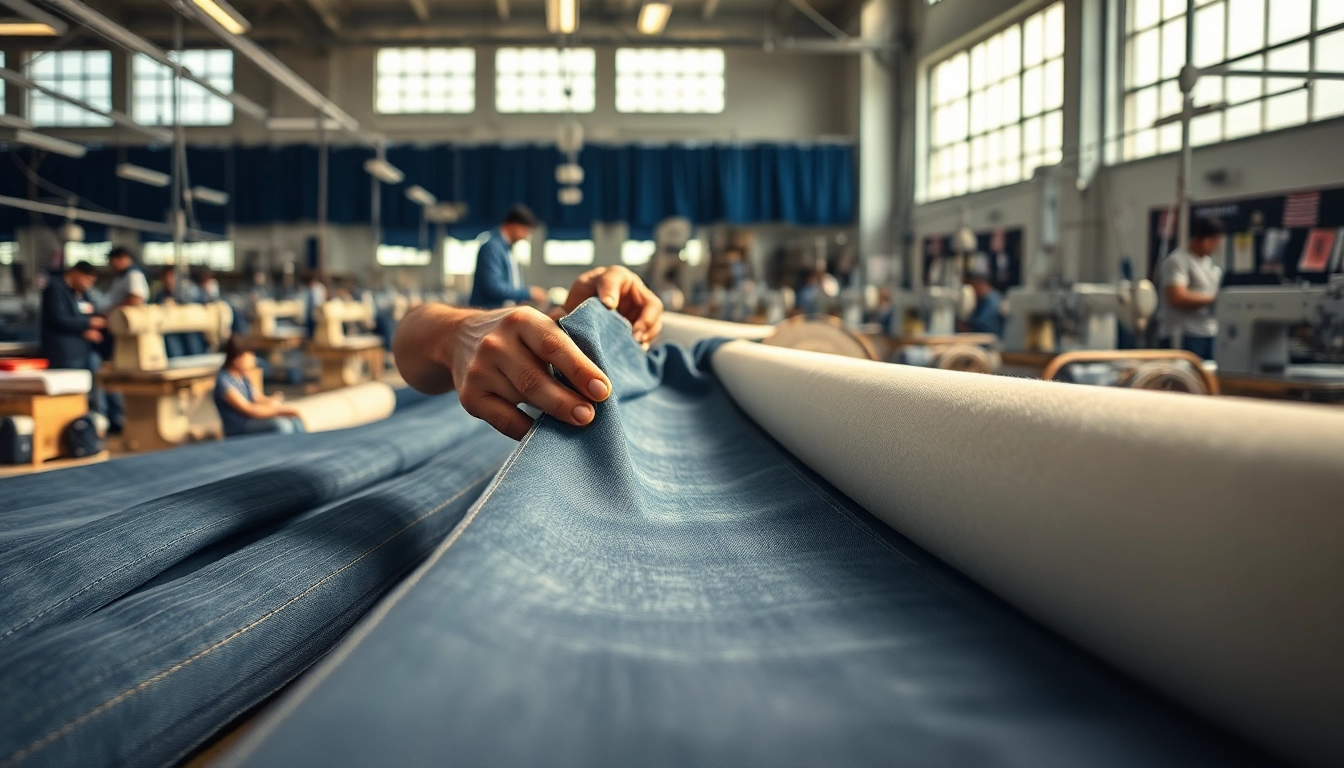
Understanding the Landscape of Jeans Factory Manufacturers
Industry Overview and Trends
The denim industry has undergone significant transformations over the past few decades, characterized by evolving consumer preferences and production methods. Today, the demand for jeans continues to rise globally, propelled by the rising popularity of casual and versatile clothing. Moreover, the integration of technology into manufacturing processes and a stark shift towards sustainability are the new norms redefining jeans factory manufacturers and their output. The jeans manufactured today are not just a fashion statement; they are often reflective of broader societal values regarding environmental awareness and ethical practices.
Types of Jeans Production
Jeans production typically falls into several categories, each tailored to specific market demands. The three primary types include:
- Mass Production: This involves creating large quantities of standardized jeans, perfect for big-box retailers and fast fashion brands. These products often prioritize cost-effectiveness over uniqueness.
- Custom Production: Engaging with jeans factory manufacturers specializing in custom jeans allows brands to offer unique styles and fits to their customers. This approach is ideal for niche markets seeking distinct fashion statements.
- Sustainable Production: Many manufacturers are embracing eco-friendly practices, opting for organic materials and sustainable production techniques, catering to the growing consumer base that values environmental responsibility.
Common Challenges Faced by Manufacturers
While the jeans manufacturing sector is dynamic, it is not without its challenges. Key issues include:
- Supply Chain Disruptions: Factors such as political instability, natural disasters, and pandemics can result in significant delays and increased costs.
- Sustainability Pressure: The denim industry faces scrutiny over its environmental impacts, leading manufacturers to rethink production processes.
- Consumer Expectations: Keeping up with fast-changing trends and consumer demands can strain manufacturing capabilities and resources.
Choosing the Right Jeans Factory Manufacturers
Criteria for Selecting a Manufacturer
Choosing the right jeans factory manufacturers is critical for achieving product success. The primary criteria to consider include:
- Experience and Expertise: Look for manufacturers with a proven track record in denim production and an understanding of current fashion trends.
- Production Capabilities: Assess whether the manufacturer can handle your production volume and has the technology needed for quality manufacturing.
- Quality Assurance: It’s essential to evaluate the quality control measures employed to ensure consistent product quality.
Evaluating Factory Capabilities
Once potential manufacturers are identified, it becomes necessary to evaluate their capabilities effectively. This can include:
- Facility Tours: Visiting the manufacturing facility will provide insights into their operations, production processes, and working conditions.
- Sample Products: Requesting samples of their previous work can serve as a testament to their quality and attention to detail.
- Technological Proficiency: A manufacturer’s use of modern technology can be an indicator of their ability to adapt and innovate.
Assessing Quality Control Processes
Ensuring high standards in quality control is paramount. Manufacturers should have stringent quality assurance protocols that include:
- Material Inspection: Raw materials used for production should meet quality standards to prevent flaws in the finished product.
- In-Process Inspections: Conducting inspections at various stages during production helps catch defects early on.
- Final Quality Checks: Thorough inspections upon completion ensure the products meet specifications before shipping.
Building Effective Partnerships with Jeans Factory Manufacturers
Communicating Expectations Clearly
Clear communication is critical in establishing a successful partnership with any manufacturer. This includes outlining project timelines, quality expectations, and specific design elements. Regular check-ins and updates help maintain clarity and transparency throughout the production process.
Creating Mutual Goals for Success
Collaboration thrives on shared objectives. Establishing mutual goals not only fosters better relationships but also aligns both parties towards common success metrics, such as quality benchmarks, delivery timelines, and customer satisfaction ratings.
Maintaining Long-Term Relationships
Long-term relationships with jeans factory manufacturers can yield benefits in pricing, priority during production peaks, and a deeper understanding of your specific needs. Regular assessments and feedback loops can help in refining processes and ensuring ongoing alignment.
Best Practices in Jeans Manufacturing
Innovations in Denim Fabric Technology
The denim industry is continually innovating. Recent advancements include:
- Stretch Denim: High-performance stretch fabrics have been developed, allowing for superior comfort and fit.
- Smart Denim: Incorporating technology within fabrics is becoming common, with features that respond to temperature and provide moisture-wicking abilities.
- Recycled Fibers: Manufacturers are investing in recycled materials to reduce environmental footprints, responding to the rising demand for sustainable options.
Eco-Friendly Manufacturing Techniques
Manufacturers are adopting more eco-friendly methods to reduce waste and energy consumption, such as:
- Waterless Dyeing Technologies: Innovations that eliminate water use in dyeing processes are becoming more widespread.
- Energy-Efficient Machinery: Manufacturing facilities are upgrading to energy-efficient machines to minimize their carbon footprint.
- Biodegradable Finishing Treatments: Many manufacturers are exploring natural finishes that do not harm the environment.
Streamlining Production Processes
Streamlining production is essential for improving efficiency and reducing costs. Techniques include:
- Lean Manufacturing: Techniques that focus on minimizing waste while maximizing productivity are being implemented within factories.
- Just-in-Time Production: This method reduces inventory costs by producing items only as needed.
- Use of Analytics: Employing data analytics can help manufacturers understand demand trends and optimize inventory management.
Measuring Success with Jeans Factory Manufacturers
Key Performance Indicators (KPIs) for Brands
To measure the effectiveness of partnerships with jeans factory manufacturers, brands should establish KPIs that gauge overall performance such as:
- Production Time: How long it takes from order placement to delivery.
- Defect Rates: The percentage of products that do not meet quality standards.
- Cost Effectiveness: Analyzing production costs against the budget set forth at the onset of the partnership.
Feedback and Improvement Loops
Implementing regular feedback processes between brands and manufacturers fosters continuous improvements and can often lead to innovations that benefit both parties. Satisfaction surveys, performance reviews, and open dialogue contribute to refining production processes.
Case Studies of Successful Collaborations
Relying on successful case studies can provide benchmarks and insights into effective practices. These collaborations often reveal successful strategies, cultural fits, and mutual growth trajectories that can guide new partnerships.